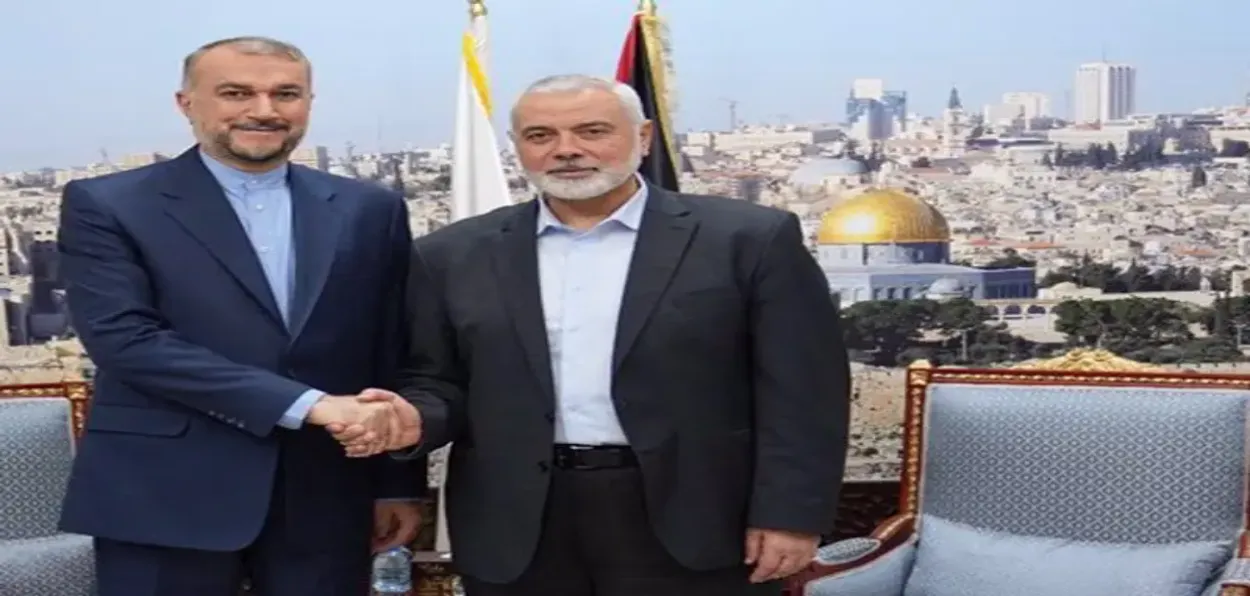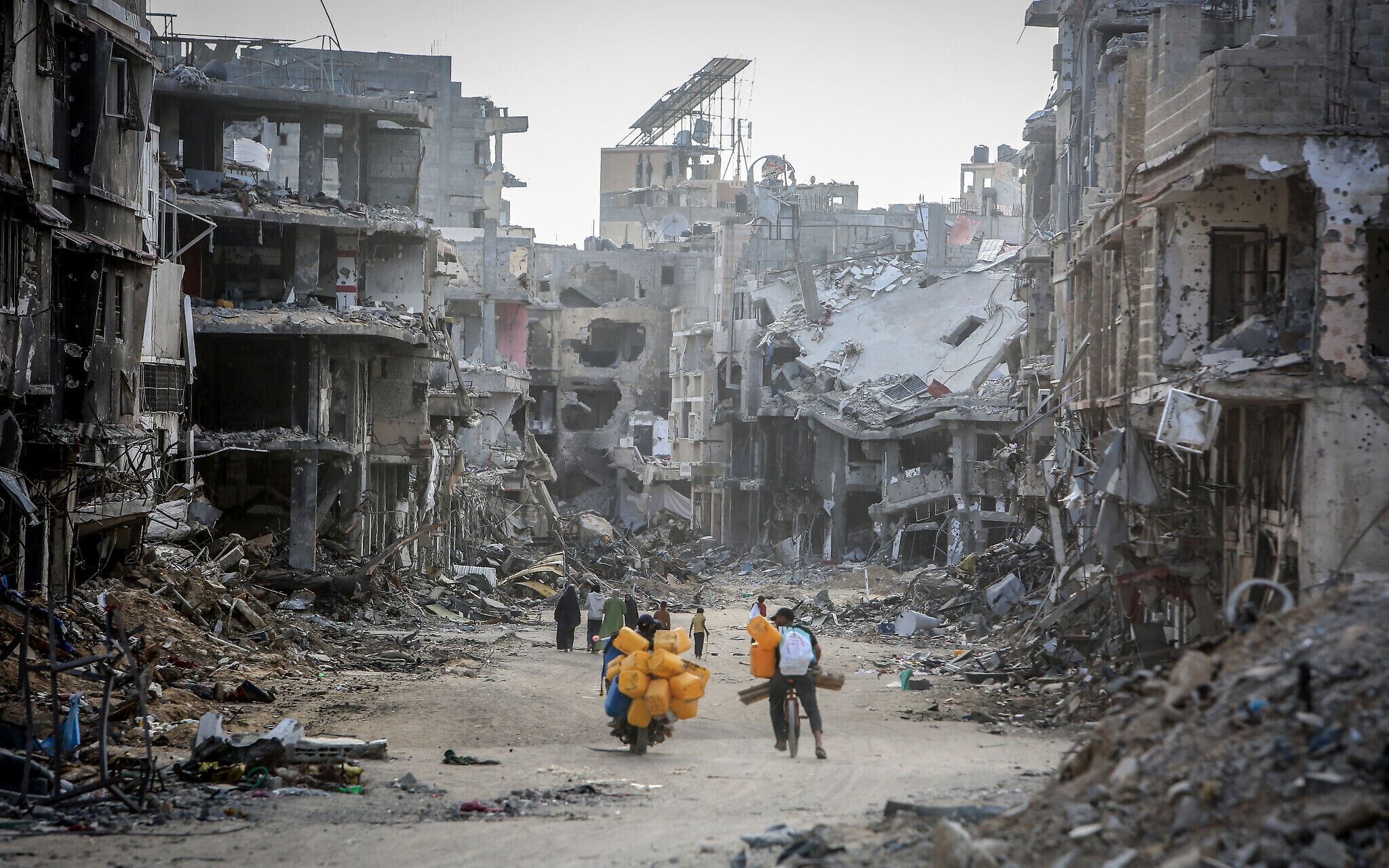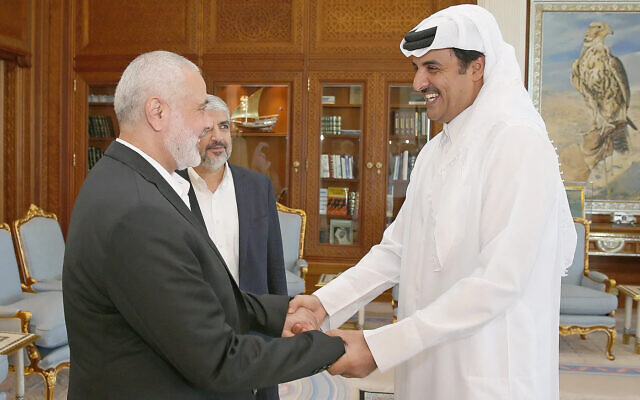
 Aditi Bhaduri
Aditi Bhaduri
On Monday, May 6, Hamas announced its acceptance of a ceasefire plan mediated in Cairo. Hamas leader Ismail Haniyeh intimated about this to leaders in Qatar, Iran, and Turkiye, who have endorsed the decision. Egypt and Qatar are said to have mediated the plan. The plan, however, has been rejected by Israel, which said that the draft agreed to by Hamas was not the original one agreed upon. Though Israel continued negotiations, they have now ceased and another ceasefire deal is in place.
According to reports, the proposal endorsed by Hamas includes three 42-day phases of ceasefire, an influx of aid to Gaza, the return of 33 Israeli hostages, and the release by Israel of 30 detained Palestinian children and women for each released Israeli hostage. The third phase includes the exchange of the remains of the dead on both sides and the reconstruction of the Gaza Strip within 3-5 years. The draft calls for a total cessation of the blockade of the Gaza Strip.
While negotiations have ended for the time being, it is interesting to know why Hamas accepted a ceasefire proposal now - after thousands dead, thousands of others uprooted, hundreds wounded, and houses, hospitals, and schools destroyed. It must be also simultaneously remembered, that the current round of fighting between Hamas and Israel - the fifth till now - was triggered by Hamas' unprecedented attacks on southern Israel on 7 October 2023, which left around 1200 dead and more than 200 taken hostages by the group. Around 33 hostages, though it is not known if all are still alive.
So, why did Hamas agree to a ceasefire now?
 Gaza after the Israeli bombardment
Gaza after the Israeli bombardment
The first explanation would rationally be to stop further death and destruction. According to the Hamas-run health ministry in Gaza, 34,000 civilians have lost their lives in Gaza, at least half of them women and children. Health care is almost non-existent, and in March the UN warned that at least 576,000 people in Gaza - one-quarter of the population - were one step away from famine.
On May 10, World Health Organization spokesperson Margaret Harris said at a briefing in Geneva that at least 30 people have died of hunger in the Gaza Strip since October 7, but the actual number was probably higher, while about 9,000 patients need emergency evacuation from the Gaza Strip, but this is currently not possible.
Yet, it had desisted from one till now. So what could have happened this time around?
Hamas agreement came with the looming Israeli invasion of Rafah, the last major city in southern Gaza and the last remaining stronghold of Hamas.
From the night of May 6 to the early morning of May 7, IDF ground troops entered Rafah within the framework of anti-terrorism operations, and Israeli tanks controlled the Rafah crossing with Egypt on the Gaza Strip side, stopping entirely the movement of goods and people. Israel has always said that this was the main point of entry of weapons and militants into the Strip. At least 16 Palestinian civilians have been reported dead since while the Israeli Defense Forces (IDF) announced it had destroyed several tunnels and eliminated some Hamas militants.
Reports in the Arab media say there was immense pressure on Hamas from Egypt as well as Qatar and Iran, the latter two being its main backers. Israel has also said that Hamas agreed to the ceasefire to prevent the Israeli assault on the group's last remaining bastion. No doubt, the militant group did not have much of a choice.
If we look at the trajectory of the conflict from the time it began on 7 October 2023, it has been clear that while much of the world has empathized with the population of Gaza, which has been under relentless Israeli air and ground assault, there has not been a parallel sympathy for Hamas visible.
Early on, we had seen condemnation of Hamas from Saudi Prince Turki al-Faisal. At a presentation at a US university, he said that the group's acts went against Islamic injunctions not to harm civilians. The prince was referring to Hamas attacks on Israel last October, in which the majority of those killed or kidnapped by Hamas were civilians, including toddlers.
 Hamas leader Ismail Haniyeh with a Qatari leader in Doha
Hamas leader Ismail Haniyeh with a Qatari leader in Doha
In this part of the Sunni Arab world, Hamas and its tactics are seen as part of the problem and not the solution. It represents the abhorrent ideology of the Muslim Brotherhood and political Islam.
First, within the Palestinian Territories Hamas is not universally welcomed. While it has a major base in the Gaza Strip because of historical reasons, it maintained its stranglehold to a large part with force and coercion. In the West Bank, however, it does not have any major popular base, its popularity lies in direct proportion to the ineptness of the Palestinian Authority.
The Palestinians' main financial backers are the Arab Gulf states, whose support will be required for the rebuilding and reconstruction of the Gaza Strip. Most of them like Saudi Arabia, the UAE, and Bahrain remain committed to opposing it.
It’s this opposition that put them at loggerheads for decades with Iran - whose leadership currently represents the Shiite version of the Muslim Brotherhood - and with Sunni Qatar. Both Iran and Qatar are the main backers of Hamas. This has also put a spotlight on Qatar's role in the region and its backing of militant Sunni groups from the Taliban to Hamas. For a while, Saudi Arabia, the UAE, and Egypt had even severed ties with Qatar over its patronage of the Muslim Brotherhood and groups affiliated with it. Thus, there has also been pressure 9n Qatar to get Hamas to commute itself to a ceasefire and hostage release.
It is not just Gulf monarchies that are opposed to Hamas. Egypt, population-wise the largest, and military the most powerful Arab state has also strictly kept Hamas away. Egypt's abhorrence of such ideology was evident in the removal of Mohammed Morsi and the toppling of his Muslim Brotherhood government. Though geopolitical experience has necessitated that Egypt enter into security agreements with Hamas from time to time, it remains fundamentally opposed to the group, something which can be seen in it refusal to accept population flows from the Gaza Strip since the current war began.
It is this that lies at the heart of the seeming apathy of the International community to stop the war in Gaza. Till now, only a seven-day "humanitarian pause" is what has been achieved. And why blame the US alone for vetting any ceasefire proposals? Even Turkey, whose President Reccep Tayyip Erdogan is a supporter of the Muslim Brotherhood and a self-proffesed supporter of Palestinians, announced a trade boycott of Israel 9nly just recently, and this too mostly for his domestic constituency and political survival at home. Yet, energy supplies to Israel from Azerbaijan - another Muslim country - through Turkish territory continue to flow.
ALSO READ: India can't be more Arab than Arabs in supporting cause of Palestine
Hamas's actions have for now brought only death and devastation to its people. Its survival impingement on its backers, some of whom may in the future be forced to wind down their support under international scrutiny and pressure. Israel, meanwhile, in consultation with the US and Arab partners, is planning for a future takeover of Gaza by the Palestinian Authority, which is Hamas's main Palestinian rival. And finally, an Israeli invasion of Gaza would deal a heavy blow to many of Hamas activists holed up there, and cause major damage to its network of tunnels.
And hey presto, Hamas agreed to a ceasefire. But it is probably a little too late.
